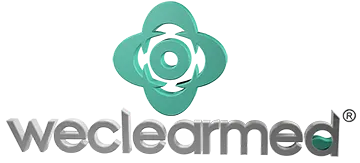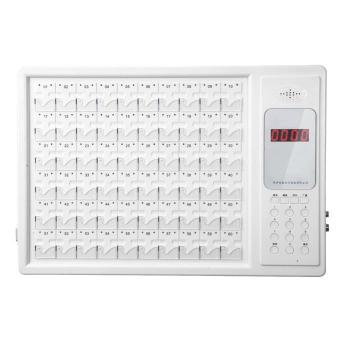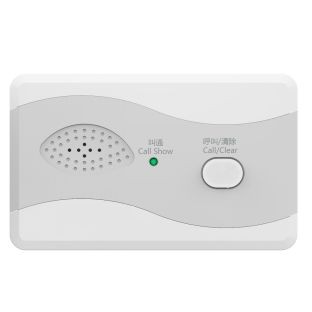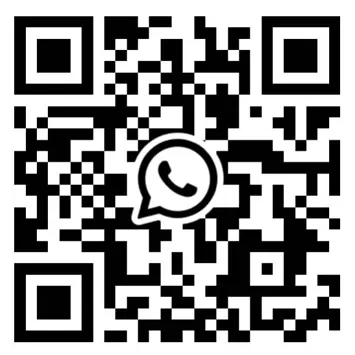
- English
- Español
- Português
- русский
- Français
- 日本語
- Deutsch
- tiếng Việt
- Italiano
- Nederlands
- ภาษาไทย
- Polski
- 한국어
- Svenska
- magyar
- Malay
- বাংলা ভাষার
- Dansk
- Suomi
- हिन्दी
- Pilipino
- Türkçe
- Gaeilge
- العربية
- Indonesia
- Norsk
- تمل
- český
- ελληνικά
- український
- Javanese
- فارسی
- தமிழ்
- తెలుగు
- नेपाली
- Burmese
- български
- ລາວ
- Latine
- Қазақша
- Euskal
- Azərbaycan
- Slovenský jazyk
- Македонски
- Lietuvos
- Eesti Keel
- Română
- Slovenski
- मराठी
- Srpski језик
- 简体中文
How does the Nurse Call System help alleviate the workload of nurses?
2025-09-11
By optimizing the workflow and reducing unnecessary movement.
After the introduction of the Nurse Call System, the workflow of nurses has been significantly optimized, and the situation of unnecessary walking has been greatly reduced. Previously, nurses had to frequently travel back and forth between the ward and the nurse station to understand the patients' needs and view the call information. Now, through the display screen of the call system, nurses can clearly know which ward's patient has made a call at the nurse station, without having to blindly patrol through various wards. This not only saves a lot of time and physical effort, but also enables nurses to better arrange their work.
Respond quickly to patients' needs and enhance the timeliness of services
The Nurse Call System has enhanced the response speed of nurses to patients' needs. Once a patient presses the call button, the mainframe at the nurse station will immediately issue an alarm notification, enabling nurses to be informed of the patient's needs at the earliest possible time. This rapid response mechanism ensures that patients' problems can be resolved promptly, avoiding situations where patients' conditions deteriorate or their satisfaction levels decline due to long waiting times. According to relevant research data, after the implementation of the Nurse Call System, the average response time for patients' calls by nurses has been shortened from the original 5 - 8 minutes to 1 - 3 minutes, and patients' satisfaction has also increased by 15% - 20%.


Intelligently assign tasks and make rational use of human resources
With the help of intelligent algorithms, modern hospital Nurse Call System can intelligently allocate call tasks based on factors such as the workload of nurses, their locations, and the urgency of patients' calls. This ensures that the appropriate nurses respond to patients' calls in a shorter time, avoiding the problem of low work efficiency caused by unreasonable task allocation. For example, when a critically ill patient makes a call, the system will prioritize assigning this task to a nurse who is closer to the patient and has a relatively less busy workload, thereby optimizing the utilization of human resources.
Provide data support to assist in management decisions
The large amount of data recorded by the Nurse Call System, such as the number of patient calls, call types, and the response time of nurses, provide strong data support for hospital management. Through in-depth analysis of these data, the management can clearly understand the weak links in nursing work and then formulate targeted improvement measures. For example, if it is found that the number of patient calls increases significantly during a certain period, the management can consider increasing the staffing of nurses during that period; if it is found that the call response time in a certain ward area is longer, the management can further investigate the reasons, whether it is equipment failure or unreasonable personnel arrangement, and take corresponding solutions in time. Through this kind of data-based refined management, the hospital can continuously optimize the allocation of nursing resources and improve the overall quality of nursing services.
| Benefit | Impact |
| Workflow Optimization | Reduces unnecessary movement via centralized displayseliminates blind patrols |
| Rapid Response | Immediate alarms response time cut to 1-3 min 15-20% patient satisfaction |
| Smart Task Allocation | AI assigns calls by staff workload/location/urgencyprioritizes critical cases |
| Data-Driven Decisions | Tracks call patterns identifies staffing gaps optimizes resource allocation |


